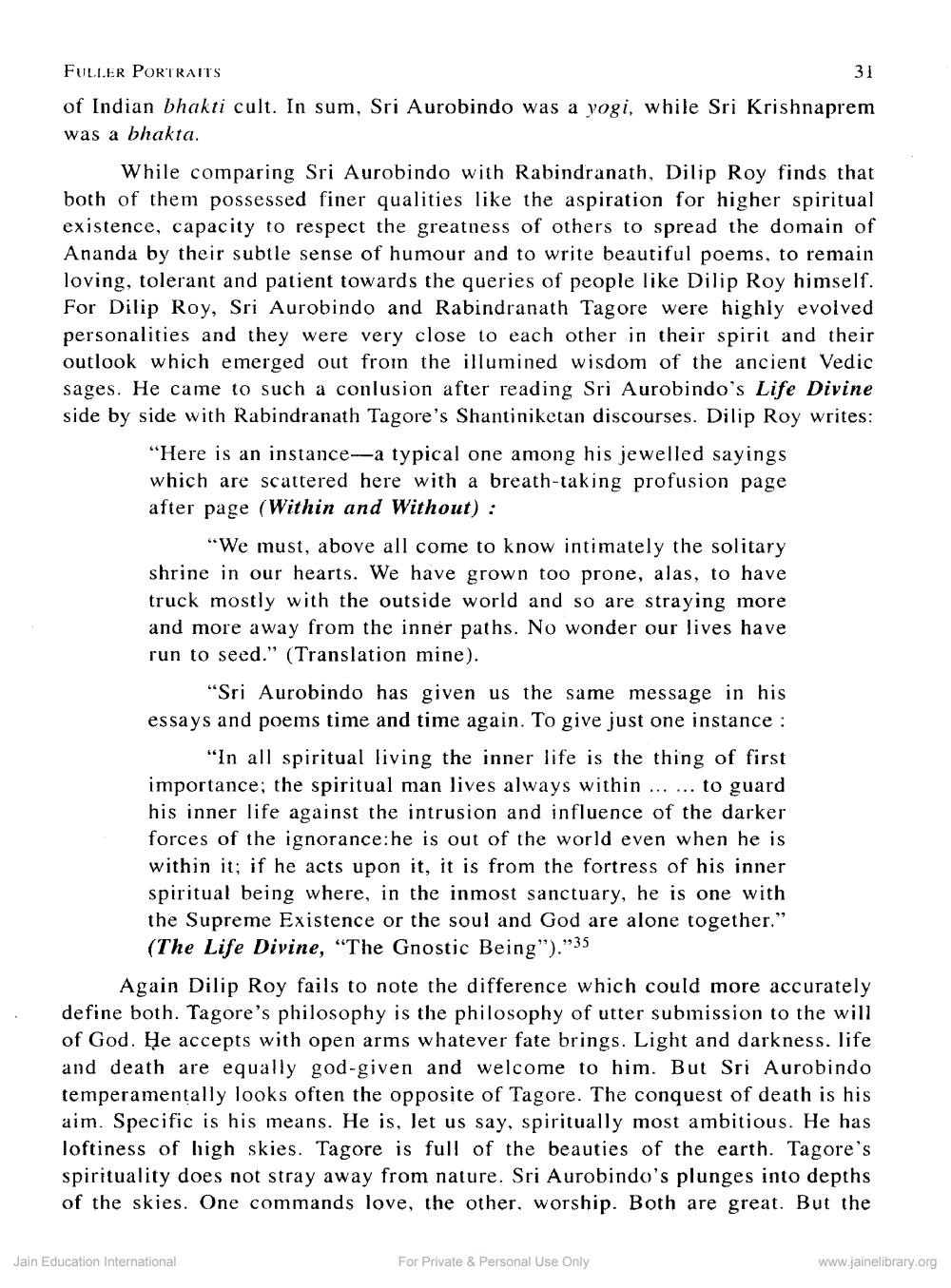________________
FULLER PORTRAITS
31 of Indian bhakti cult. In sum, Sri Aurobindo was a yogi, while Sri Krishnaprem was a bhakta.
While comparing Sri Aurobindo with Rabindranath, Dilip Roy finds that both of them possessed finer qualities like the aspiration for higher spiritual existence, capacity to respect the greatness of others to spread the domain of Ananda by their subtle sense of humour and to write beautiful poems, to remain loving, tolerant and patient towards the queries of people like Dilip Roy himself. For Dilip Roy, Sri Aurobindo and Rabindranath Tagore were highly evolved personalities and they were very close to each other in their spirit and their outlook which emerged out from the illumined wisdom of the ancient Vedic sages. He came to such a conlusion after reading Sri Aurobindo's Life Divine side by side with Rabindranath Tagore's Shantiniketan discourses. Dilip Roy writes:
"Here is an instance--a typical one among his jewelled sayings which are scattered here with a breath-taking profusion page after page (Within and Without):
“We must, above all come to know intimately the solitary shrine in our hearts. We have grown too prone, alas, to have truck mostly with the outside world and so are straying more and more away from the inner paths. No wonder our lives have run to seed." (Translation mine).
"Sri Aurobindo has given us the same message in his essays and poems time and time again. To give just one instance :
"In all spiritual living the inner life is the thing of first importance; the spiritual man lives always within ... ... to guard his inner life against the intrusion and influence of the darker forces of the ignorance: he is out of the world even when he is within it; if he acts upon it, it is from the fortress of his inner spiritual being where, in the inmost sanctuary, he is one with the Supreme Existence or the soul and God are alone together." (The Life Divine, "The Gnostic Being").""35
Again Dilip Roy fails to note the difference which could more accurately define both. Tagore's philosophy is the philosophy of utter submission to the will of God. He accepts with open arms whatever fate brings. Light and darkness. life and death are equally god-given and welcome to him. But Sri Aurobindo temperamentally looks often the opposite of Tagore. The conquest of death is his aim. Specific is his means. He is, let us say, spiritually most ambitious. He has loftiness of high skies. Tagore is full of the beauties of the earth. Tagore's spirituality does not stray away from nature. Sri Aurobindo's plunges into depths of the skies. One commands love, the other, worship. Both are great. But the
Jain Education International
For Private & Personal Use Only
www.jainelibrary.org




